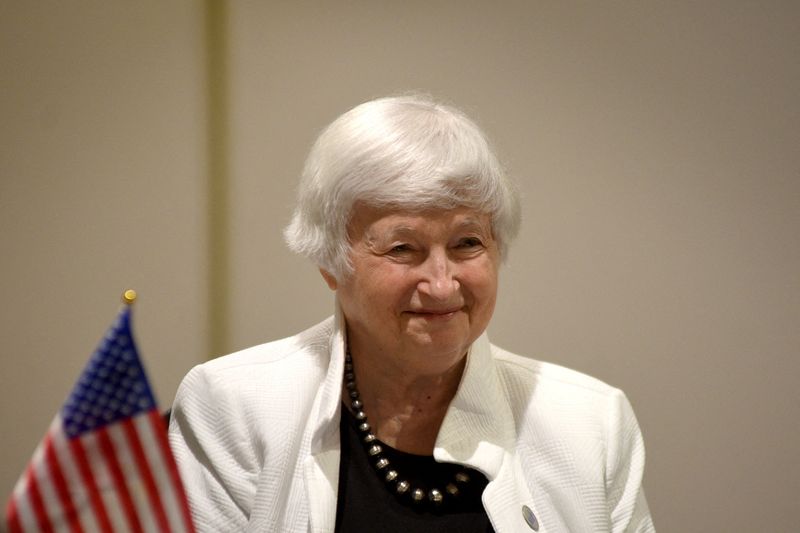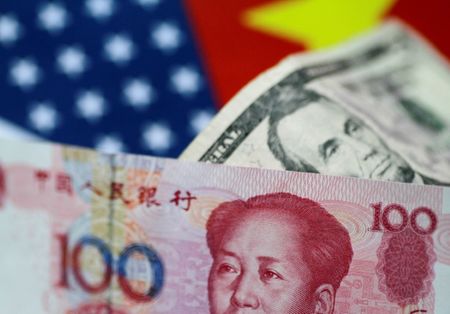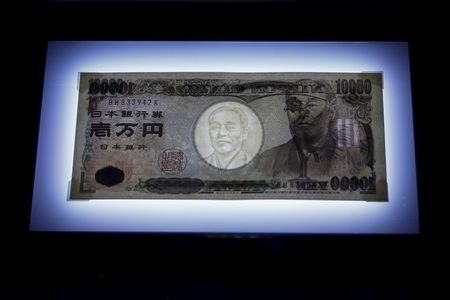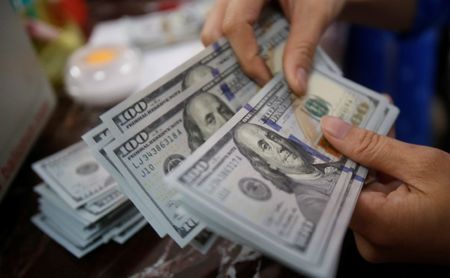The Egyptian pound lost ground on the black market again in recent days in a sign that halving its official value over the past year could still not be enough and the central bank may have to let it slide further.
Despite its pledge in October to allow supply and demand determine exchange rates, the central bank has been managing the currency in a tight band that has remained virtually unchanged at around 30.80/90 to the dollar for three weeks while the pound has slid to between 35 and 36 in the black market.
The renewed pressure on the pound has prompted speculation the central bank will need to act again, perhaps as soon as Thursday, when its monetary policy committee meets to decide overnight interest rates.
Egypt has sharply devalued the currency three times since Russia’s invasion of Ukraine in February 2022 exposed vulnerabilities in the country’s finances.
But with each devaluation the central bank aimed to keep the currency steady afterwards, only for the black market and non-deliverable forwards to quickly push beyond the new rate.
With 12-month NDF rates now over 40 per dollar, another large-scale pound devaluation was just a matter of time, said Gergely Urmossy at Societe Generale (OTC:SCGLY).
“No time like the present to align foreign exchange rates with fundamentals,” Urmossy said, adding that the March 30 policy announcement was “one of the most anticipated events in the African Frontier space.”
The weakening currency and soaring inflation, which in February hit a five-and-a-half-year high of 31.9%, also put more pressure on the central bank to raise rates, even if it adds to the costs of servicing climbing government debt.
Among Egypt’s heavy foreign debt liabilities are $3.5 billion in repayments for previous IMF programmes coming due by the end of this year.
And the black market shows the hard currency shortage that has plagued Egypt for more than a year persists.
“Demand for foreign exchange continues to outstrip supply, providing the conditions for the parallel market to grow,” said Farouk Soussa of Goldman Sachs (NYSE:GS).
“Egypt’s options have narrowed to a simple choice: either improve the foreign exchange supply picture through asset sales and reforms, or bring down demand for hard currency through further painful adjustment.”
Such adjustment would most likely entail more pound weakness, higher interest rates, higher inflation and a lower standard of living for the average Egyptian, Soussa added.
Graphic: Egypt NDFs – https://fingfx.thomsonreuters.com/gfx/mkt/lbpggjyoqpq/Pasted%20image%201679933328397.png
UNFULFILLED PROMISE
Egypt aimed to avoid such an adjustment when it announced an ambitious plan for state asset sales a year ago.
The programme, however, has stalled, with no major sales since Egypt agreed on a $3 billion financial support package with the International Monetary Fund in October. As part of that agreement, Cairo also promised “a durable shift to a flexible exchange rate” that has yet to materialise.
A weaker and floating currency would lessen the drain on dollars by discouraging imports, while increasing dollar transfers by Egyptians working abroad and further boosting tourism, analysts say.
For now, Egyptians abroad fear the pound will weaken further, so either hold onto their earnings or have been using black market traders to repatriate funds, bankers said.
Investors in the meantime have shied away from Egyptian treasuries and Eurobonds, leaving the government perilously low on foreign exchange, with billions of dollars worth of imports backlogged at ports for lack of foreign currency to clear them.
Foreign currency has all but dried up on the interbank market, with most banks forced to rely on clients’ pound purchases or on remittances from Egyptians working abroad, bankers say.
“Another devaluation is widely expected, but by itself, we do not see it bringing in much needed capital inflow,” said Monica Malik of ADCB.
“There needs to be meaningful signs of reform progress to help start rebuilding investor confidence, including a truly flexible EGP, tighter monetary policy and the privatisation programme,” said Malik, who sees the pound settling at 36 to 38 to the dollar after possibly overshooting this mark initially.
Source: https://www.investing.com/news/economy/analysispressure-builds-on-egypt-to-devalue-currency-further-3042666




